Blog
Learning To Say No – Part 2

Please note that this blog post is the second part of a series in which we discuss the importance of saying no. In the first part, we discussed why people tend to feel selfish when saying no, and also looked at why saying no can be so difficult. If you’ve not already done so, we suggest you read part 1, as it will provide a proper intro to this topic. Please click here to view that post: [Link]
What are some good reasons for saying no?
The primary reason for saying no to someone should always be that your needs take priority. Putting someone else’s needs in front of your own will only cause problems. It also sets a very bad precedent going forward, as others can potentially seize upon that tendency and take advantage of it. While it’s nice to help others, you must make sure that your own needs are properly tended to first and foremost. There is no better reason to decline a request. You must prioritize, placing yourself at the top. This is not an encouragement for you to become selfish or narcissistic; rather, we are emphasizing that if your own needs first receive the required attention, you will then be able to assist the other people in your life. In part 1 of this series we provided the analogy of the empty pitcher. You can easily become the empty pitcher if you are always taking care of others before taking care of yourself.
A great reason for saying no (and one that is often set aside) is that you really just don’t want to do it. Quite often we receive requests to do things that we’d prefer not to, but then guilt sets in and we second-guess ourselves. Your first instinct is usually the right one, so if you initially felt like you didn’t want to do the favor, then listen to yourself and say no. Guilt is a terrible reason to do things; we should do things because we want to. While there are certainly exceptions to this (like being told what to do at your job), it’s important to really take some time to think about how you feel when being asked for favors. Trust your instincts; they will rarely steer you wrong.
Sometimes people will ask for help knowing full-well that they are capable of handling it themselves. It is just easier to have someone else take care of it. When confronted with this type of request, it’s important to first analyze it and determine whether it’s in your best interest to get involved. By too-easily acceding to a request like this, you are enabling the person to outsource his issues/tasks. Saying no to these types of requests is usually the best strategy. Why should you be encumbered to handle something for someone who isn’t inclined to help himself?
While there are many good reasons to say no, it’s important to note that you should always take time to think about the request before responding.
What are some useful tools to help me say no?
When trying to change a set behavior, it’s important to have the proper tools to help empower you. Learning to say no is a process that at first will be challenging. However, with helpful tools it will become easier.
Practice makes perfect, so the more opportunities you have to say no, the better. If you have people in your life who have become accustomed to your inability to say no, then it’s time for some practice. The next time a minor request comes your way that you really don’t want to do, find the courage to refuse it outright. By doing so, you’ll likely catch the other person off-guard. He or she is expecting you to say yes, and will likely protest your response. Be sure to stand your ground. There’s no room for negotiations when learning this new behavior.
Something that is very important to understand is that you’re not saying no to the person; you’re saying no to the request. It’s important that you detach the two. In so doing, you should be able to set aside the emotional connection that might otherwise make you feel guilty or second-guess your response.
Preparation is a key to success with any venture; taking some time to plan how you’re going to start saying no is advisable. If you’re a known “people-pleaser,” it’s essential that you map out a plan on how you’re going to start saying no more often. A great time to do this would be during morning meditation. If you’re not one to meditate, then just find (or make) some quiet time and visualize yourself saying no to the people who keep asking for favors. Visualizing is a powerful tool—one that we will discuss in a future blog post.
Being a people-pleaser is a role that has few rewards. Empower yourself and prioritize your needs. Learn to say no. If you don’t value your own needs, then who will?









